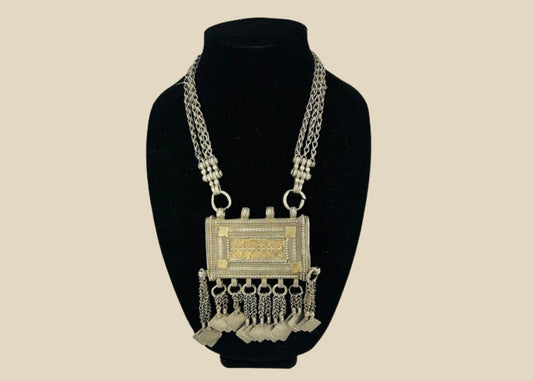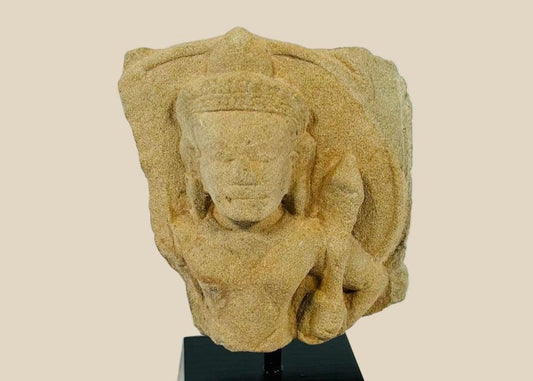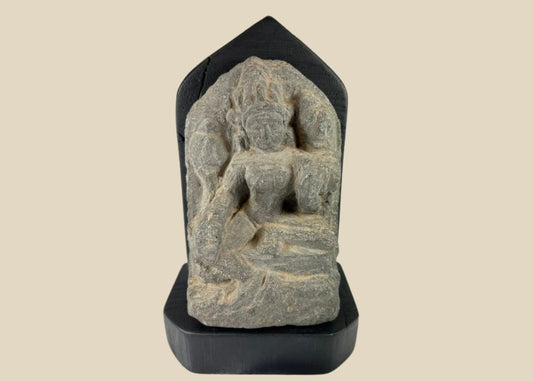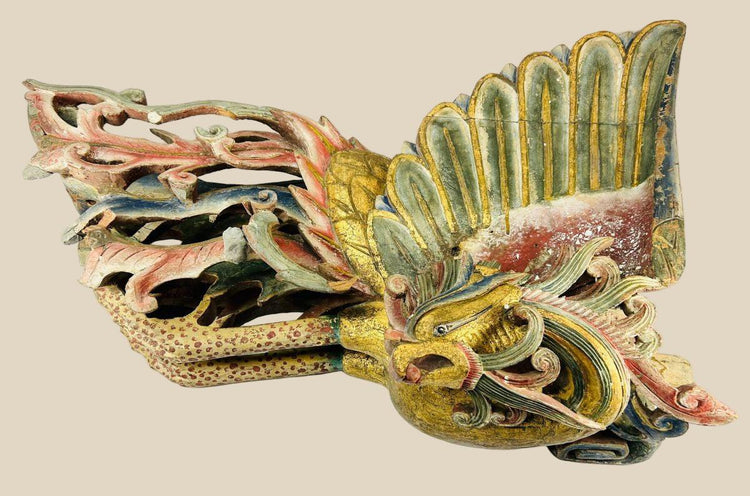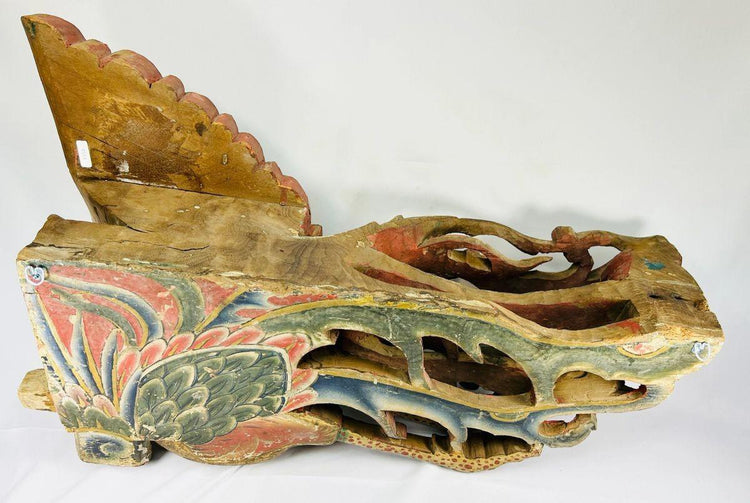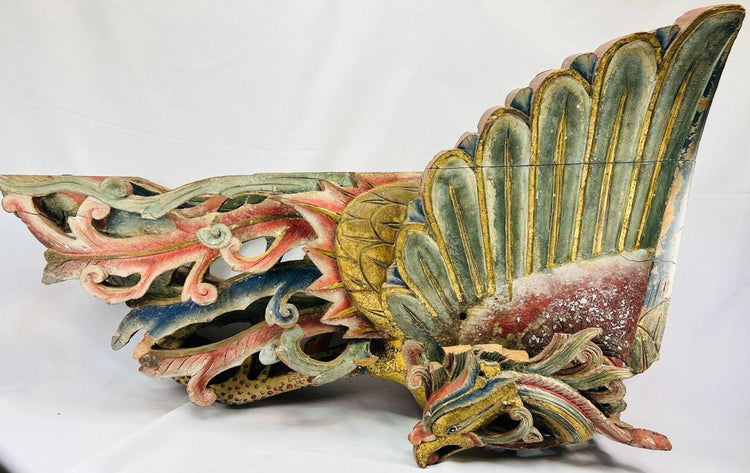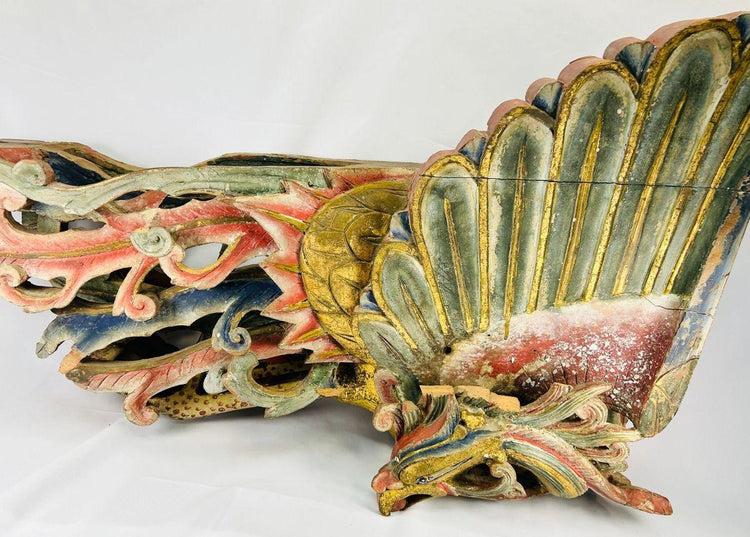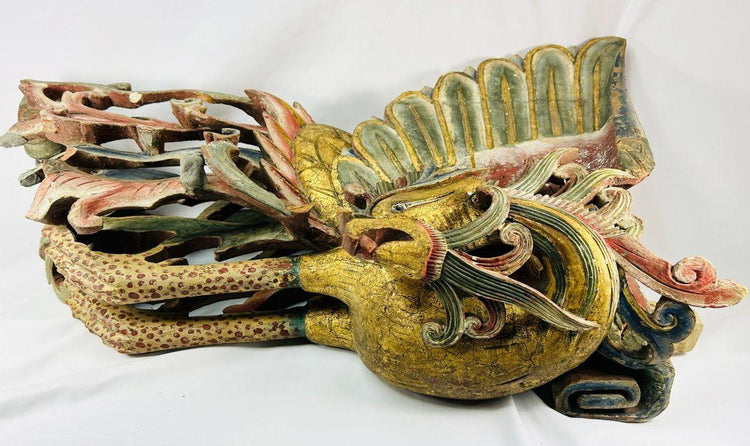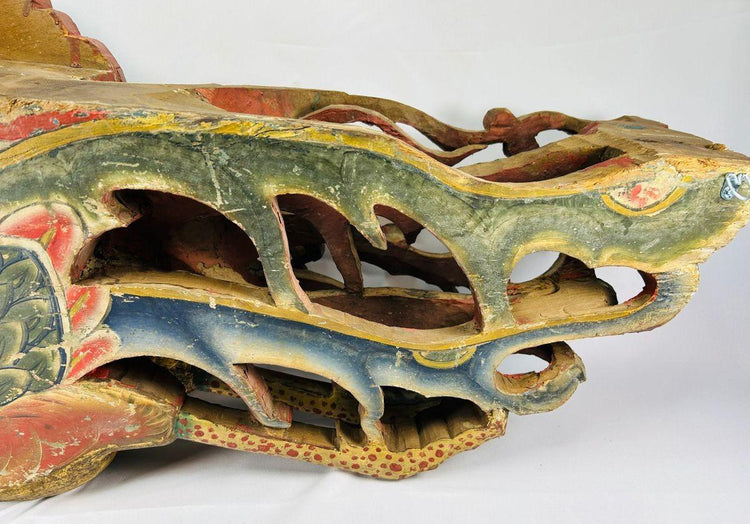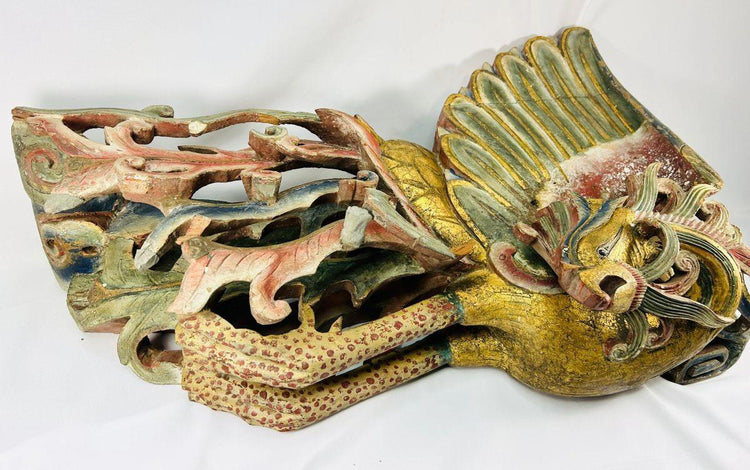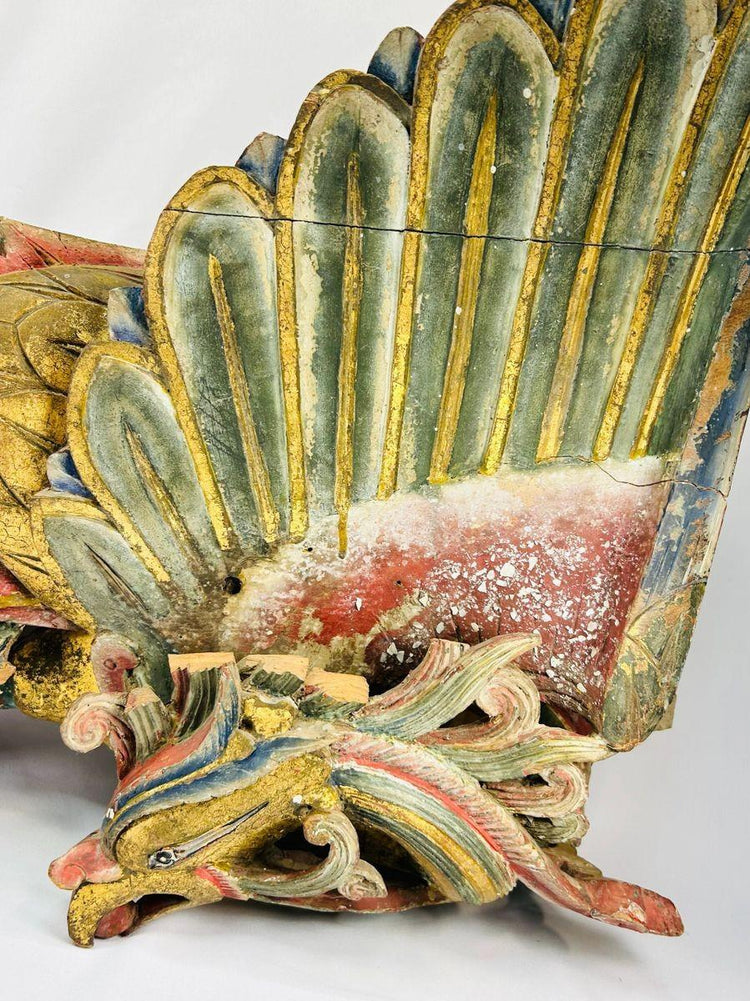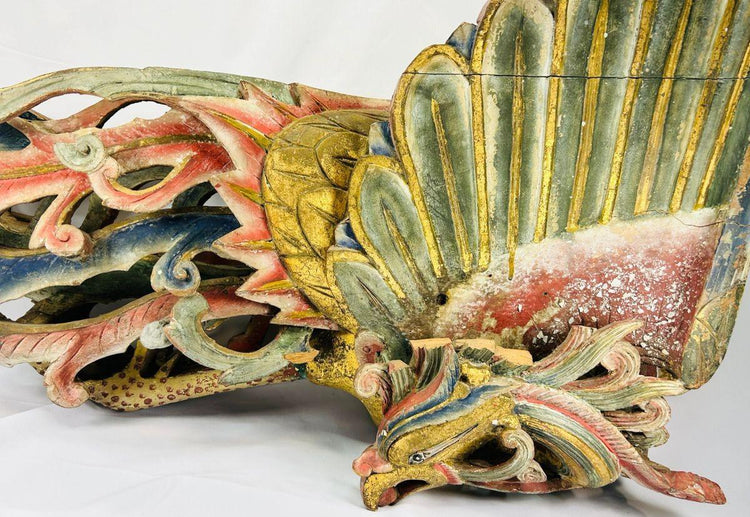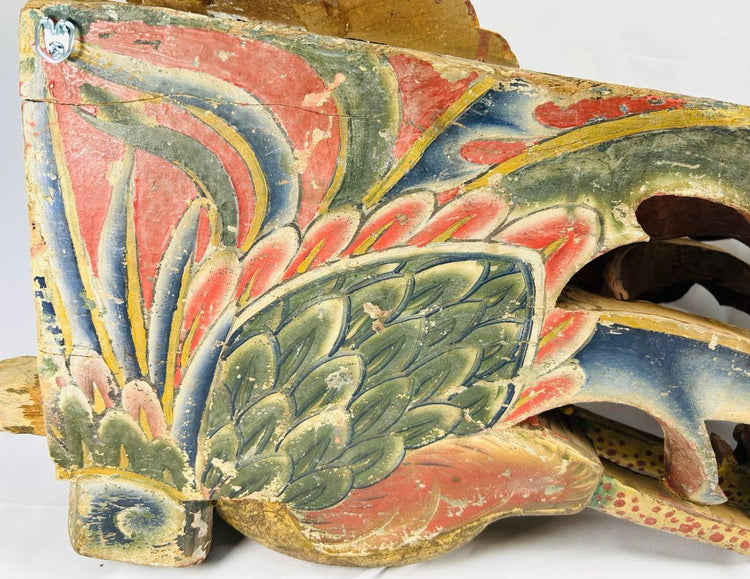Qing Dynasty Phoenix Relief | Hand-Carved Camphor Wood with Gilding & Polychrome Pigments | 19th Century
Description
More
Less
Historical Context & Origin
Region: China
Material: Hand-carved and painted camphor wood with gilded highlights
Period: Mid-19th Century
Description
This exquisite architectural element, hand-carved from camphor wood, depicts the phoenix—an enduring symbol in Chinese mythology representing immortality, renewal, and prosperity. The carving showcases the phoenix in mid-flight, its wings raised and neck arched gracefully, embodying both elegance and dynamic energy. Each feather is meticulously detailed, highlighted with traces of gilt and rich polychrome pigments in red, green, and blue. The fierce yet refined head, flowing crest, and intense black-painted eye give the figure a commanding presence. Originally designed as part of a temple or significant architectural structure, the piece exemplifies the sophistication and spiritual symbolism of 19th-century Chinese craftsmanship.
Features
- Phoenix in dynamic mid-flight pose with raised wings and bent neck
- Intricately carved plumage with gilt and polychrome highlights
- Fierce, regal head with flowing crest and painted eye detail
- Rich palette of red, gold, blue, and green signifying vitality and prosperity
- Large-scale carving from camphor wood with layered textures for depth
Cultural Significance
In Chinese tradition, the phoenix (Fenghuang) is regarded as an auspicious symbol of rebirth, harmony, and divine power. Architectural carvings such as this were often placed in temples or important cultural sites to invoke blessings, protection, and prosperity for the community. This piece not only represents mythological symbolism but also stands as a testament to the artistic refinement of Qing Dynasty artisans who combined devotion with decorative mastery.
Condition
The carving remains in excellent condition for its age, with vibrant traces of original polychrome paint and gilding still visible. Natural wear, surface weathering, and minor age-related losses are present but do not detract from its striking visual impact. The patina adds historical authenticity, emphasizing its role as a sacred and decorative object.
Dimensions (approximate)
Length: 28 in
Age
Over 150 years old
Learn More
Read from Our Blog: The Phoenix Reborn – 19th-Century Chinese Temple Art
Explore More About The Phoenix in Chinese Legend, History, Symbolism and Culture.
View Some of Our Other Ancient Chinese Artifacts & Imperial Relics
Description
Historical Context & Origin
Region: China
Material: Hand-carved and painted camphor wood with gilded highlights
Period: Mid-19th Century
Description
This exquisite architectural element, hand-carved from camphor wood, depicts the phoenix—an enduring symbol in Chinese mythology representing immortality, renewal, and prosperity. The carving showcases the phoenix in mid-flight, its wings raised and neck arched gracefully, embodying both elegance and dynamic energy. Each feather is meticulously detailed, highlighted with traces of gilt and rich polychrome pigments in red, green, and blue. The fierce yet refined head, flowing crest, and intense black-painted eye give the figure a commanding presence. Originally designed as part of a temple or significant architectural structure, the piece exemplifies the sophistication and spiritual symbolism of 19th-century Chinese craftsmanship.
Features
- Phoenix in dynamic mid-flight pose with raised wings and bent neck
- Intricately carved plumage with gilt and polychrome highlights
- Fierce, regal head with flowing crest and painted eye detail
- Rich palette of red, gold, blue, and green signifying vitality and prosperity
- Large-scale carving from camphor wood with layered textures for depth
Cultural Significance
In Chinese tradition, the phoenix (Fenghuang) is regarded as an auspicious symbol of rebirth, harmony, and divine power. Architectural carvings such as this were often placed in temples or important cultural sites to invoke blessings, protection, and prosperity for the community. This piece not only represents mythological symbolism but also stands as a testament to the artistic refinement of Qing Dynasty artisans who combined devotion with decorative mastery.
Condition
The carving remains in excellent condition for its age, with vibrant traces of original polychrome paint and gilding still visible. Natural wear, surface weathering, and minor age-related losses are present but do not detract from its striking visual impact. The patina adds historical authenticity, emphasizing its role as a sacred and decorative object.
Dimensions (approximate)
Length: 28 in
Age
Over 150 years old
Learn More
Read from Our Blog: The Phoenix Reborn – 19th-Century Chinese Temple Art
Explore More About The Phoenix in Chinese Legend, History, Symbolism and Culture.
View Some of Our Other Ancient Chinese Artifacts & Imperial Relics
You May Also Like

